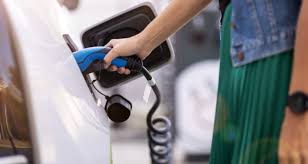
Breaking News
 Joe rogan reacts to the Godfather of Ai Geoffrey Hinton talk of his creation
Joe rogan reacts to the Godfather of Ai Geoffrey Hinton talk of his creation
 Shocking Scenes in Russia: Apartment Buildings Buried Under Massive Snowfall!
Shocking Scenes in Russia: Apartment Buildings Buried Under Massive Snowfall!
 Bill Hemmer: THIS is why Greenland matters
Bill Hemmer: THIS is why Greenland matters
 Trump Blasts Britain Over Deal To Return Diego Garcia
Trump Blasts Britain Over Deal To Return Diego Garcia
Top Tech News
 The day of the tactical laser weapon arrives
The day of the tactical laser weapon arrives
 'ELITE': The Palantir App ICE Uses to Find Neighborhoods to Raid
'ELITE': The Palantir App ICE Uses to Find Neighborhoods to Raid
 Solar Just Took a Huge Leap Forward!- CallSun 215 Anti Shade Panel
Solar Just Took a Huge Leap Forward!- CallSun 215 Anti Shade Panel
 XAI Grok 4.20 and OpenAI GPT 5.2 Are Solving Significant Previously Unsolved Math Proofs
XAI Grok 4.20 and OpenAI GPT 5.2 Are Solving Significant Previously Unsolved Math Proofs
 Watch: World's fastest drone hits 408 mph to reclaim speed record
Watch: World's fastest drone hits 408 mph to reclaim speed record
 Ukrainian robot soldier holds off Russian forces by itself in six-week battle
Ukrainian robot soldier holds off Russian forces by itself in six-week battle
 NASA announces strongest evidence yet for ancient life on Mars
NASA announces strongest evidence yet for ancient life on Mars
 Caltech has successfully demonstrated wireless energy transfer...
Caltech has successfully demonstrated wireless energy transfer...
 The TZLA Plasma Files: The Secret Health Sovereignty Tech That Uncle Trump And The CIA Tried To Bury
The TZLA Plasma Files: The Secret Health Sovereignty Tech That Uncle Trump And The CIA Tried To Bury
New Electric Car Batteries Can Fully-Charge in 5 Minutes, Like Filling Your Car With Gas.

The innovative company, StoreDot, which has delivered rapid-charge versions of lithium-ion batteries for phones and scooters, has now gorged itself on millions in investment dollars and cranked 1,000 car batteries out of a Chinese assembly line.
The breakthrough replaces the graphite anode which causes problems when trying to force energy into the battery. The lithium ions become congested through this method, before phase-shifting into metal and then shorting the battery.
StoreDot replaces the graphite with silicon, which not only circumnavigates this problem but reduces costs since silicon is far cheaper. The current crop of 1,000 batteries uses germanium, which is also waterproof, and the silicon ones are expected later in the year.
Tesla and its founder Elon Musk liked the sound of this idea, and so set up a research and development center in Israel to take advantage of the innovations coming out of StoreDot, which was named by Bloomberg as the New Energy Finance Pioneers winner for 2020.

 Nano Nuclear Enters The Asian Market
Nano Nuclear Enters The Asian Market


